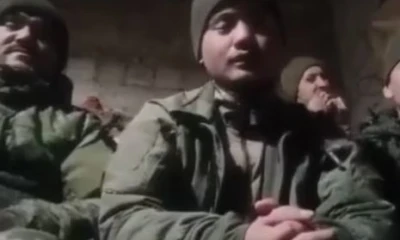A group of Nepali men stranded in Russia has made a desperate plea to the Indian Government to rescue them from what they claim is forced participation in the ongoing Russia-Ukraine war. The men, identified as Sanjay, Ram, Kumar, and Santosh, assert they were deceived into believing they would work as helpers in the Russian Army, but have instead been coerced into fighting in the conflict.
In a video, the four men recounted their ordeal, stating that they were part of a larger group initially, but many have either been sent elsewhere or sustained injuries. Their numbers have dwindled, leaving them feeling isolated and vulnerable in a foreign land.
According to their account, they were promised employment as helpers but were later compelled to engage in combat. They allege that the Nepal Government has not responded to their pleas for assistance and that the Nepali Embassy in Moscow has been unresponsive to their requests for help.
Expressing their faith in the longstanding friendship between Nepal and Bharat, the men appealed to the Indian Government for aid, expressing hope that Bharat would intervene to ensure their safe return home. They outlined the disparity in assistance, highlighting the support received by Indian nationals in similar circumstances.
The plea from the Nepali men follows reports of similar exploitation faced by Indian citizens in Russia. Earlier, a video surfaced featuring seven Indian men who claimed they were coerced into fighting after being promised jobs as cooks and drivers. One of them alleged that they were forced to sign agreements before being thrust into the conflict.
The situation underscores the vulnerability of migrant workers, who often fall victim to deceptive recruitment practices and exploitation abroad. The plight of these Nepali men serves as a poignant reminder of the urgent need for international cooperation and protection of migrant rights.
As the world watches the escalating tensions between Russia and Ukraine, the fate of these stranded men serves as a stark reminder of the human cost of war and the responsibility of nations to safeguard the welfare of their citizens abroad.

















